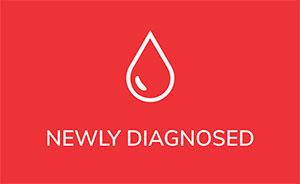In short videos with accompanying text, Dr. Brian Koffman, the Executive Vice President (EVP) and Chief Medical Officer (CMO) of the CLL Society, takes us through his “Top 12” abstracts from ASCO or the American Society of Clinical Oncology Annual Meeting held virtually in May, 2020.
#2
ASCO 2020: Acalabrutinib in treatment-naïve chronic lymphocytic leukemia: Mature results from phase II study demonstrating durable remissions and long-term tolerability
The next-generation BTK inhibitor acalabrutinib is now approved for all CLL patients, both for those who are treatment-naïve (TN) and for those with relapsed/refractory (R/R) disease.
At virtual ASCO 2020, Dr. John Byrd led a group of researchers to report on the latest from the first phase 2 study of acalabrutinib, ACE-CL-001 (NCT02029443).
The abstract presents the longest safety and efficacy follow-up data in symptomatic patients who took acalabrutinib as their first therapy to treat CLL.
Takeaways:
- 99 patients were treated.
- Average age was 64 years.
- 47% had more advanced disease with Rai stage 3–4.
- Negative prognostic factors included 10% with del(17p) and 62% unmutated IgHV.
- Results:
- Side effects:
- After 53 months, 86% remained on the drug with only 6 stopping due to side effects and 3 due to progressive disease, including 1 transformation to Richter’s Syndrome.
- Most common adverse events were diarrhea (52%), headache (45%), upper respiratory tract infection (44%), arthralgia or joint pains (42%), and contusion or bruises (42%).
- Atrial fibrillation was seen in 5% of patients.
- No patient had to stop treatment due to hypertension.
- Serious adverse events occurred in 38% of patients and included 4 with pneumonia and 3 with sepsis.
- 2 deaths occurred, 1 from pneumonia and 1 from heart failure. Neither were considered drug related.
- Efficacy:
- Overall response rate was 97%, with 7% having a complete response.
- Response rates were similar across all high-risk groups.
- Median duration of the response has not been reached.
- Side effects:
Conclusions:
This is more good news. Acalabrutinib works well for all treatment naïve (TN) CLL patients, including those with high-risk prognostic markers such as del (17p).
The vast majority of patients can and do stay on acalabrutinib treatment because its side effects are generally mild and manageable, and because most patients don’t progress, at least in the 4½ plus years in these data.
What this abstract tells us is that we have another frontline therapy in acalabrutinib that is not only well tolerated, but also effective, with nearly all patients responding. Plus now, we know that those responses are durable.
Here is the link to: Acalabrutinib in treatment-naïve chronic lymphocytic leukemia: Mature results from phase II study demonstrating durable remissions and long-term tolerability.
Stay strong and safe. We are all in this together.
Brian Koffman MDCM (retired) MS Ed
Co-Founder, Executive VP and Chief Medical Officer
CLL Society, Inc.

















